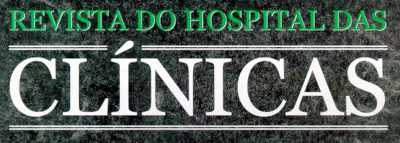EDITORIAL
Ethics and the management of terminally ill children
Marco Segre
The terminally ill patient can be defined as one having no expectation of quality or longevity of life. To what extent this situation results from the patient's own "will to live", even from a subconscious level, is impossible to determine. However, it can be clearly seen that certain people succumb despite all the effort expended in the sense of prolonging their lives. This fact can be attributed to individual elements (for example, failure of the immunological system), but we cannot be certain whether the primary factor is the physiological condition or a totally compromised "psyche".
It is evident that it is harder for us to accept this consideration when it involves children, since we tend to think that in pediatric patients "everything is external" (i.e. the disease) and that the incipient individuality does not weigh decisively in the expiration process. Nevertheless, even taking into account that the child interferes little in the attempt for survival (or not), or in voicing this will, it seems logical that his or her family (parents and or legal guardians) should have some influence in the decision-making process as to an abbreviation of the life; this is logical even though the abbreviation consists merely of the non-implementation of measures that would result in further suffering without the possibility of returning to something that could pass for a relationship with one's fellow man.
We underscore that now brain death is not the objective of this analysis, since there is already a legal precedent in Brazil (though no corresponding law) that considers this situation, provided it is duly proven as death. Since this has already been resolved legally and also because I believe this posture to be completely adequate, I will not linger on the matter. In such situations, it is recommended that a death certificate should be issued, especially because the removal of organs from these bodies for transplantation would otherwise characterize infanticide.
To reflect on and discuss bioethics transcends a mere obedience to established codes; no matter how many norms are written with a view towards regulating the conduct of doctors in the most diverse situations, each clinical situation always signifies facing conflicts, which should be managed with sensibility and equilibrium. Even the consecrated "Principles of Bioethics" prepared by Beauchamp and Childress to better protect the legal interests of the doctors and their patients principles of autonomy, beneficence, non-malfeasance, and justice do not provide us with a solution for all cases. For example, can one consider it to be beneficence to maintain a child alive at all cost, irrespective of the child's suffering and that of the family; after all, the Hippocratic oath places life as the maximum asset, to be preserved, when in fact this could cause "harm" (up to the limit even in financial terms) to a whole group of people.
"Good" and "harm" are liable to such diverse points of view, as is the concept of "autonomy" itself, in a moment when one deals with children or those who have lost their ability to reason.
Thus it can been seen, once again, that the bioethic discussion is pre-legal and that only an analysis conducted as freely as possible of the ensuing affective situations necessitating indeed a condition of empathy and solidarity can direct our actions.
Consequently, one can affirm that the characterization of ethical is best used as a substantive rather than an adjective and that the qualification of unethical implies an obedient acceptance of a prior norm that either does not exist or can always be questioned.
See related article in this issue.
Publication Dates
-
Publication in this collection
15 Mar 2004 -
Date of issue
Feb 2004

